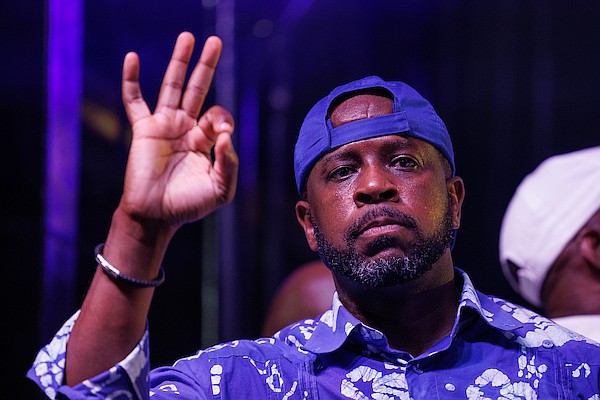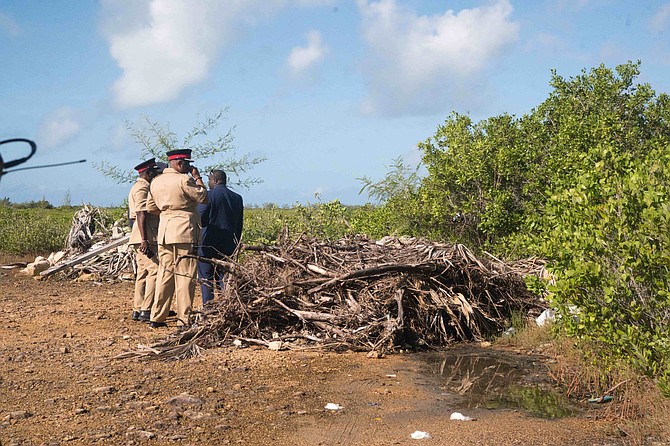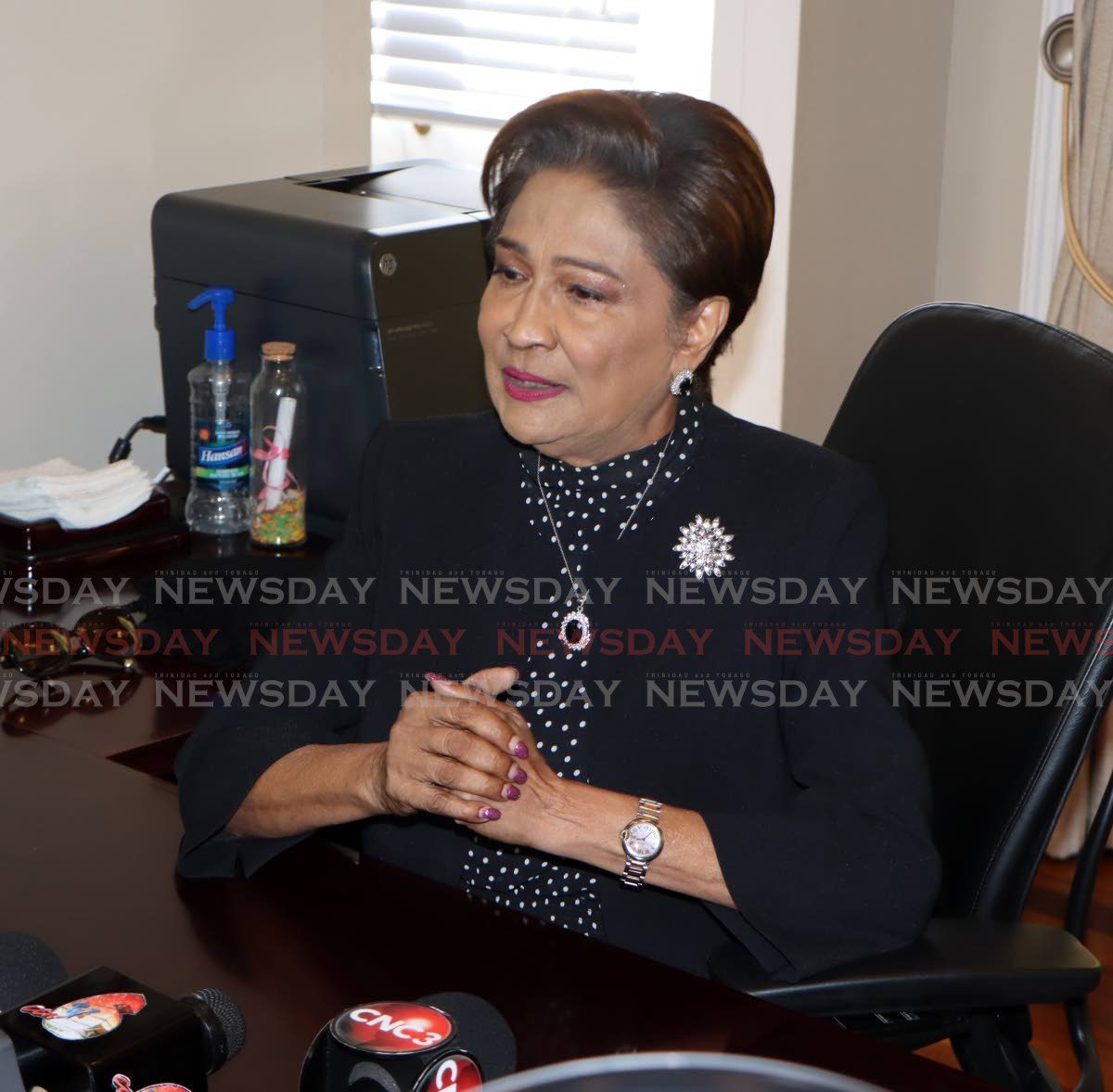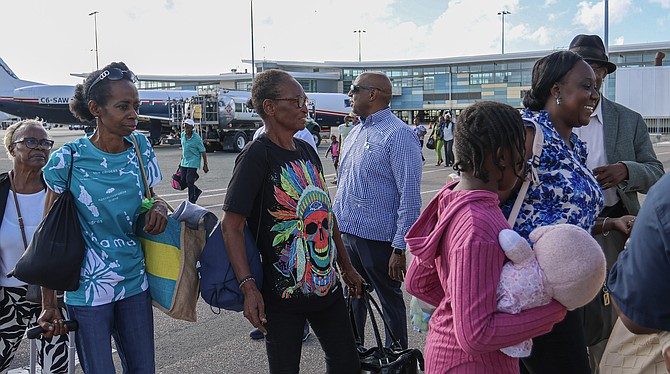In response to the impending threat of Hurricane Melissa, Prime Minister Philip “Brave” Davis has issued a mandatory evacuation order for over 1,400 residents in the southeast Bahamas. The order, effective from October 27 to November 1, targets vulnerable islands including Inagua, Mayaguana, Acklins, Crooked Island, Long Cay, and Ragged Island. Priority is given to the elderly, the sick, and children, with air and sea transportation provided to relocate evacuees to New Providence, where shelters and accommodations have been arranged. The decision follows consultations with the Disaster Risk Management Authority and the Bahamas Department of Meteorology, emphasizing the precautionary nature of the evacuation to ensure safety before conditions worsen. Forecasts predict hurricane-force winds, heavy rainfall, and storm surges of up to six feet in the southeast Bahamas. Supplies and emergency personnel have been pre-positioned, and all government agencies are operating under the National Disaster Response Framework. Deputy Director of Meteorology Jeffrey Green reported that Hurricane Melissa, currently a Category 5 storm with sustained winds of 175 mph, is expected to impact Jamaica, Cuba, and the Bahamas. Evacuation flights began early yesterday and will continue today, with over 370 people already relocated. Authorities anticipate the number of evacuees to exceed 1,400. Prime Minister Davis expressed solidarity with Jamaica, the Dominican Republic, Cuba, and Haiti, which are already experiencing the storm’s effects, acknowledging the fear and uncertainty such storms bring.
博客
-

Pickstock promises 10-point plan for Golden Isles
Darren Pickstock, the Progressive Liberal Party (PLP) candidate for the upcoming Golden Isles by-election, has introduced an ambitious ten-point plan aimed at revitalizing the constituency. His platform emphasizes critical infrastructure improvements, including road repairs and enhanced drainage systems, alongside upgraded bus services. Additionally, Pickstock has proposed community-focused initiatives such as Read Across Golden Isles, Project Fresh, and the Stay in the Game sports program to foster local engagement and development.
-

Newborn baby alive after being found in bushes
A newborn baby boy, still with his umbilical cord attached, was discovered crying in bushes off Marshall Road yesterday morning as heavy rain began to fall. The incident has sparked a police investigation and widespread concern. According to authorities, the infant was found by a passerby, Acharro Gaitor, who alerted the police shortly after 9 a.m. Gaitor, who was in the area at the time, described the emotional moment of discovering the child. ‘I started praying,’ he told ZNS News. ‘That’s the first thing I did, and my prayer is that the child will live and represent the kingdom of God.’ Emergency medical services were immediately called to the scene, and the baby was transported to a nearby hospital. Police later confirmed that the infant was in good health despite the ordeal. Chief Superintendent Darron Nixon, the officer in charge of the Carmichael police station, issued a heartfelt plea to the baby’s mother, urging her to come forward. He emphasized that there are numerous resources available for women facing crisis situations. ‘Mothers should not have to endure this kind of trauma,’ Nixon stated. ‘It is a traumatic situation, and she needs to know that there is help available. We are not blaming her, and we hope she will come forward to us and let us know that it is her child. The child is still alive, and there is help for this situation.’ The incident has raised questions about the support systems in place for vulnerable mothers and the importance of community awareness.
-

Court of Appeal orders no costs in high profile citizenship case
The Court of Appeal in The Bahamas has issued a landmark ruling, declaring that neither the government nor Bahamian resident Dahene Nonard will be required to pay legal costs in a protracted citizenship case that has stirred controversy due to a delayed judgment issued by a retired Supreme Court justice nearly three years after leaving office. The decision, delivered by Justice Crane-Scott with the concurrence of Chief Justice Sir Ian Winder, Justice Charles, Justice Smith, and Justice Turner, emphasized that fairness and justice necessitated both parties bear their own costs. The court stated, “the justice of this particular case dictates that there be no order as to the costs of the appeal.”
The case traces back to 2013 when Ms. Nonard applied for Bahamian citizenship. After years of inaction, she sought judicial review and constitutional relief in November 2018, alleging the government’s failure to process her application. The matter was heard in February 2021, but the presiding judge reserved her ruling. It was not until August 2024, three years and five months later, that the judgment was delivered—nearly three years after the judge’s retirement. The government appealed, arguing the retired justice lacked constitutional authority to issue a ruling post-retirement. In July 2025, the Court of Appeal agreed, deeming the August 2024 judgment unconstitutional, invalid, and a nullity. The court set aside the ruling and remanded the case to the Supreme Court for rehearing.
The cost issue remained unresolved until the recent ruling. The government, represented by attorney Kayla Green-Smith, argued it was entitled to costs as the successful party. Ms. Nonard’s legal team, led by Frederick Smith, KC, countered that the delay and appeal were caused by the judicial system, urging no order on costs. Justice Crane-Scott acknowledged both parties as innocent victims of the delay, stating, “Neither the appellants nor the respondent are responsible for the delay which transpired after the learned judge reserved her decision in February 2021.”
The court highlighted that while the government technically prevailed on appeal, its victory was based on the judgment’s unconstitutionality, not the merits of its legal arguments. Justice Crane-Scott emphasized that applying the usual costs rule would be unconscionable, as Ms. Nonard had no fault in the delay. The ruling referenced section 30(1) of the Supreme Court Act and Rule 24(5) of the Court of Appeal Rules, which grant judges discretion over costs. It also cited precedents like Scherer v Counting Instruments Ltd, affirming that a successful party has no automatic right to costs, and each case must be evaluated on its unique facts.
-

Unstatesmanlike
Prime Minister Kamla Persad-Bissessar of Trinidad and Tobago has recently drawn sharp criticism for her inflammatory and undiplomatic language, raising concerns about her suitability for public office. On October 24, the United National Congress (UNC) leader launched an unsubstantiated attack on the opposition People’s National Movement (PNM), accusing them of protecting the illegal profits of drug mafia financiers. Earlier that day, she referred to the leadership of the Law Association, a statutory body dedicated to legal advocacy, as “eat-a-food filth.” These remarks followed her earlier call for the U.S. military to “kill them all violently” in response to summary executions at sea by the Trump administration, suggesting traffickers should be “blown to pieces.” When questioned about the extrajudicial nature of such actions, she dismissively stated, “People are saying no due process, no law – whatever.” Collectively, these incidents paint a troubling picture of a leader prone to reckless and unfitting rhetoric. Despite her attempts to moderate her language in subsequent press interactions, her cavalier attitude toward facts persisted. For instance, she falsely claimed that Dr. Keith Rowley, the former Prime Minister who advocated for Caribbean peace, had been voted out of office, when in fact, he stepped down voluntarily. Her attempts to link the country’s murder rate to narco-trafficking also lack nuance, ignoring the complex socio-economic factors at play. While Dr. Rowley’s tenure was not without controversy, Mrs. Persad-Bissessar’s conduct appears to emulate the radical right, further alienating her from a multicultural and harmonious society. Her party’s electoral victory, achieved with just 30% of the electorate in a historically low voter turnout, does not equate to broad social consensus. This disconnect makes her posturing even more divisive, both domestically and internationally.
-

Oh Jamaica, Jamaica!
As Hurricane Melissa approaches Jamaica, memories of past storms like Hurricane Gilbert in 1988 resurface, highlighting the stark contrast between then and now. In 1988, the internet was in its infancy, and advanced technologies like artificial intelligence and virtual reality were mere science fiction. Today, the digital age provides real-time updates and harrowing images of Melissa’s impending impact, amplifying the sense of urgency and fear. The Caribbean, often referred to as a ‘zone of peace,’ now faces a critical test of its unity and mutual cooperation. Jamaica, no stranger to hurricanes, is bracing for the storm, but concerns linger about the nation’s ability to withstand the devastation, particularly in impoverished and underdeveloped areas. The author reflects on the disproportionate impact natural disasters have on the most vulnerable populations and calls for solidarity among Caribbean nations. Trinidad and Tobago’s response to Jamaica’s plight post-Melissa will be a litmus test for regional cooperation, especially as the country pursues its own economic agenda. The letter concludes with a heartfelt plea for Jamaica’s safety and recovery, underscoring the fragility of human resilience in the face of nature’s fury.
-

Kamla chooses country before self
In a decisive move to combat the escalating drug crisis, Kamla Persad-Bissessar, the Prime Minister of Trinidad and Tobago (TT), has aligned herself with the United States in its efforts to curb drug exportation from Venezuela. This strategic decision, though met with criticism from her Caribbean counterparts, underscores her commitment to prioritizing national security over political alliances.
Persad-Bissessar’s stance comes amidst allegations that Venezuela has been using TT as a transit point for drug trafficking, exacerbating the country’s already high crime rates. After nearly a decade of deliberation, the Prime Minister has chosen to break away from the status quo, distancing herself from Venezuelan leaders Nicolás Maduro and Delcy Rodríguez. Instead, she has engaged with US officials, including Senator Marco Rubio, to formulate a collaborative plan to address the issue.
Her decision has not been without controversy. Fellow members of the Caribbean Community (Caricom) have expressed disapproval, isolating her and criticizing her departure from the collective regional stance. This has led to TT losing Caricom’s support for a seat on the United Nations Security Council. However, Persad-Bissessar remains undeterred, viewing the fight against drug trafficking, gun violence, and human smuggling as paramount. Her unwavering dedication has become the cornerstone of her leadership, even at the cost of her political career.
In essence, Prime Minister Persad-Bissessar has chosen to put her country’s safety and security above all else, demonstrating a rare willingness to sacrifice personal and political gains for the greater good.
-

Parang Festival
The National Parang Association of Trinidad and Tobago successfully hosted its third annual Parang Festival on October 25, 2025, at the San Raphael RC School. The event, themed *El Poder de La Parranda* (The Power of Parang), showcased the rich cultural heritage of parang music, a traditional genre deeply rooted in the country’s history. Thirteen talented bands graced the stage, including Los Sonidos, Herencia Venezolana, Voces de Promesa, Admonias Magníficas, Los Amigos Cantadores, Los Alumnos de San Juan, Voces Jóvenes, and Buenos Ayres Sancouche. Each group brought their unique flair to the festival, captivating the audience with lively performances. Newsday photographer Angelo Marcelle documented the event, capturing the essence of the vibrant celebrations. Highlights included the youthful energy of Admonias Cantadores, which underscored the promising future of parang, and the spirited performance by La Familia de Carmona y Amigos, representing Chaguanas. Jade Antoine of Los Sonidos also stood out, showcasing her skill on the maracas. The festival not only entertained but also reinforced the cultural significance of parang music in Trinidad and Tobago.
-

An appeal for compassion
In the wake of a heart-wrenching incident involving the death of a three-day-old baby during Divali celebrations, there has been a renewed and urgent call for the outright ban of fireworks. The infant reportedly succumbed to trauma caused by the deafening explosions of fireworks, raising serious concerns about the societal tolerance for such practices. The incident has sparked a fierce debate about the ethical implications of allowing fireworks, especially when they pose significant risks to public health and safety. Critics argue that the justification for fireworks as a short-term celebration is indefensible, likening it to condoning harmful actions if they occur within a limited timeframe. The lack of responsible usage and the inability of law enforcement to effectively manage the chaos further exacerbate the issue. This incident underscores a broader societal problem of lawlessness and irresponsibility, which undermines core values such as discipline and tolerance. The author passionately advocates for a complete ban on fireworks, urging religious leaders, medical professionals, educators, and other societal figures to join the movement and amplify their voices in this critical matter.
-

Happy for the USS Gravely’s visit
The USS Gravely, a US naval warship, has docked at the Port of Port of Spain for a five-day visit to Trinidad and Tobago (TT), concluding on October 30. This visit is part of joint training exercises with the Trinidad and Tobago Defence Force (TTDF), aimed at enhancing tactical readiness, operational efficiency, and maintaining international standards of excellence. However, the Opposition has raised concerns, labeling the visit as a threat to national sovereignty and security. In a letter to the editor, Leisha S. Dhoray strongly condemns the Opposition’s stance, describing it as misguided, irresponsible, and unpatriotic. Dhoray argues that the Opposition’s reaction is based on fear-mongering and misinformation, with no evidence to support their claims. She highlights the positive outcomes of previous US-TT defense collaborations, such as the Tradewinds 2025 exercise and the USNS Comfort’s medical mission, which brought free healthcare to hundreds of citizens. Dhoray emphasizes that the USS Gravely’s visit is a continuation of constructive defense cooperation, aimed at advancing regional security, strengthening defense partnerships, and building mutual trust. She calls on the Opposition to support initiatives that strengthen national security and global partnerships, rather than engaging in reckless political grandstanding.
